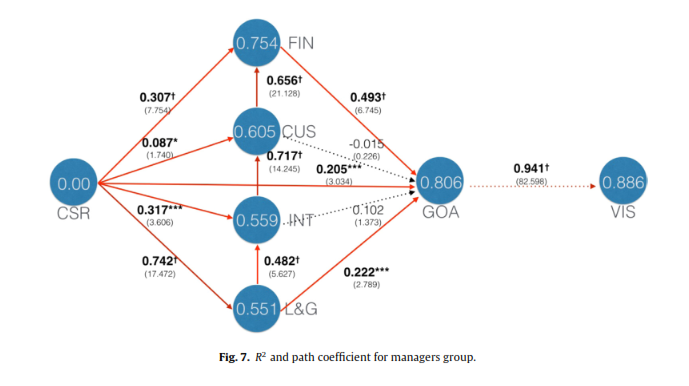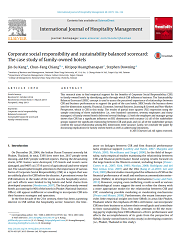Corporate social responsibility and sustainability balanced scorecard: The case study of family-owned hotels
Published in International Journal of Hospitality Management, 2015
Recommended citation: Kang, JS, Chiang, CF, Huangthanapan, K, & Downing, S (2015). "Corporate social responsibility and sustainability balanced scorecard: The case study of family-owned hotels." International Journal of Hospitality Management. 48:124-134. http://www.sciencedirect.com/science/article/pii/S0278431915000742

Abstract
This research aims to find empirical support for the benefits of Corporate Social Responsibility (CSR) to family-owned hotels by identifying paths through which CSR influences business. The Sustainability Balanced Scorecard (SBSC) concept is used to assess the perceived importance of relationships between CSR and business performances to support the goals of the case hotels. SBSC breaks the business down into five dimensions namely; Financial, Customer, Internal Business, Learning & Growth and Non-Market Perspective, which is CSR in this study. The results of partial least squares (PLS) regression using the sample consisting of three stakeholders (i.e., two hundred customers, seventy employees and thirty managers) of family-owned hotels delivered several findings: (i) both the employee and manager group shows that CSR has a significant influence on BSC dimensions with variance (ii) all of the stakeholder groups support the significant relationship between CSR and goals and (iii) all of the stakeholder groups confirm the causal relationship among BSC dimensions with variance. Lastly, we conclude the paper by discussing implications for family-owned hotels as well as addressing limitations.


